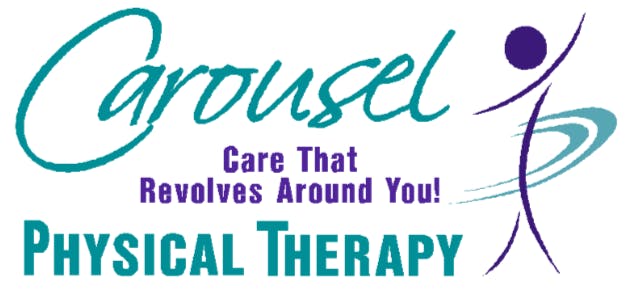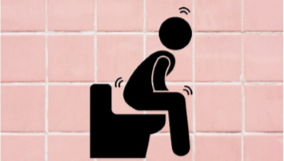By: Kennan Wyne, PT, DPT
Everyone has had constipation at some point or another and it is uncomfortable, painful and embarrassing. Chronic constipation and/or straining can lead to excessive stress on pelvic organs and nerves. This may contribute to bladder dysfunction, pelvic floor dysfunction, and/or prolapse (bulging of structures occurring commonly due to weakened supportive structures). Constipation is defined as infrequent (fewer than 3) bowel movements per week. Normal stools should be about the size, shape, and consistency of a ripe banana.*
Listed below are tips to keep your colon happy.

Tip #1: Avoid regular use of laxatives and enemas.
Tip #2: Discuss fiber needs with physician/pharmacist/nutritionist. Typical recommendations for fiber intake are 25-35 grams per day. If adding fiber to diet remember to DRINK 6-8 cups of WATER to move stool through the colon. You may experience a bloating feeling and/or gas when adding fiber to your diet, but this should pass in a few weeks. This may be eased by adding fiber SLOWLY to your diet.
-
- Examples of high fiber foods are bran, shredded wheat, whole grain bread, and whole fresh fruits with skin (apples, raw veggies).
Tip #3: Proper positioning: Position yourself on the toilet to allow for maximal relaxation of your pelvic floor muscles by using a Squatty Potty or stool to obtain maximal knee and hip flexion (similar to a squat position) and leaning forward and supporting elbows on knees. NO STRAINING OR HOVERING as this increases intraabdominal pressure and pressure on the pelvic floor.
Tip #4: Regular exercise helps stimulate a sluggish bowel.
*Any persistent change in bowel habits, such as increase or decrease in frequency, size of the stool, blood in the stool, or an increased difficulty in evacuating, warrants a medical consultation.

